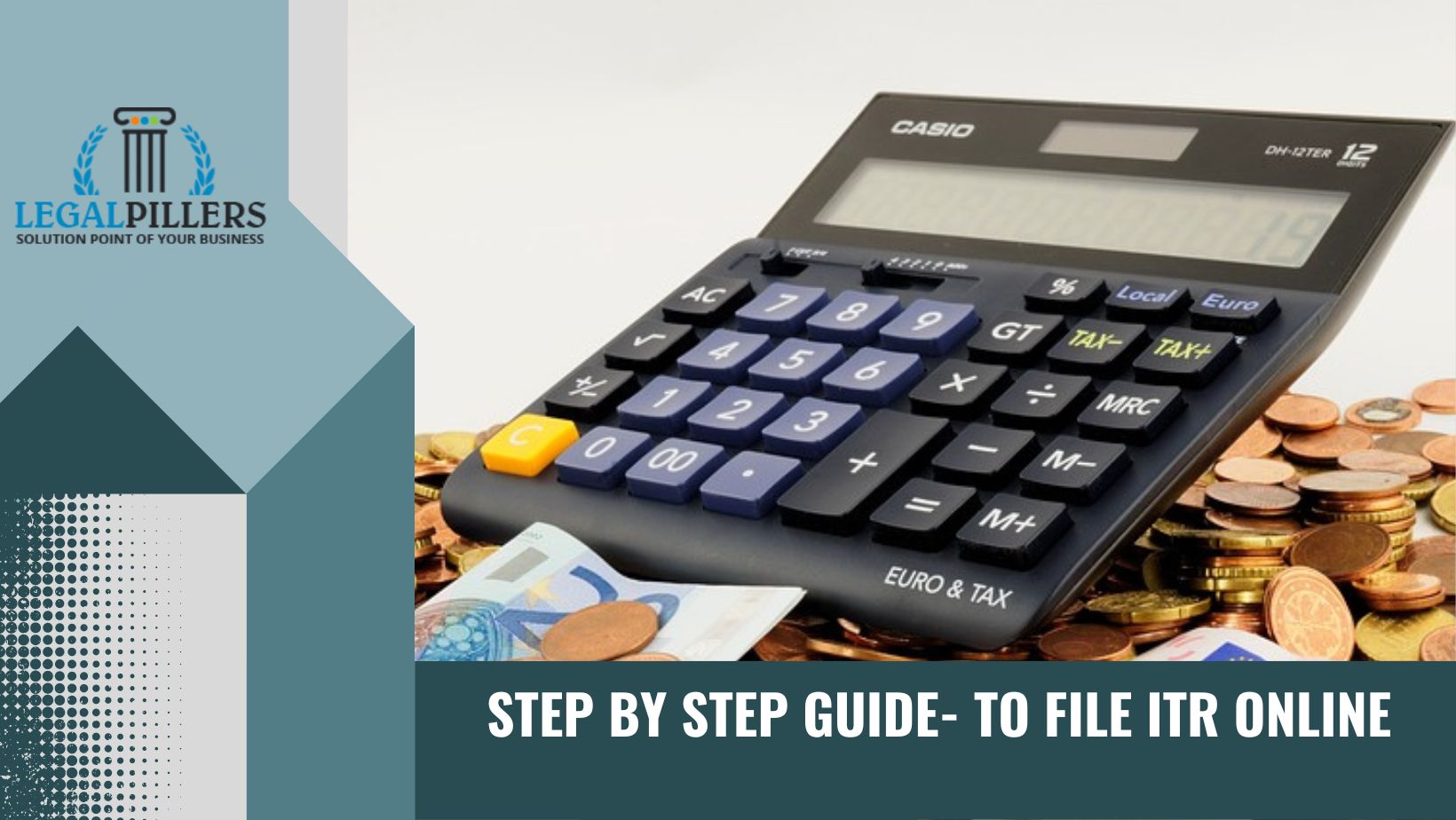
The Income tax e-filing is the type of form that allows a taxpayer to disclose his earnings expenditures as well as deductions from taxes, investments, taxes, etc. Taxes, etc. The Income Tax Act, of 1961 obliges taxpayers in a variety of circumstances to submit taxes on income.
A tax return on income is a form that is used to record the annual earnings of a taxpaying taxpayer. There are many other reasons to file your Income tax return even without income such as carrying forward losses, seeking the tax deduction for income, claiming tax deductions, and so on.
It is important to note that the Income Tax Department provides the facility to electronically file (e-filing) the income tax return. Before we discuss what steps are involved with electronic filing of income tax returns it is crucial for taxpayers to save the required documents for calculation and reporting information in the ITR filing online.
Table of Contents
Step 1: Calculation of the Income and Tax
The taxpayer is required to calculate their earnings in accordance with the tax law regulations applicable. The calculation must include the income earned from any source including salary, freelance or income-related interest, and so on. Taxpayers are entitled to deductions, such as tax-saving investments in section 80C. A taxpayer must be aware of credits to TDS, TCS, or any tax that they pay in advance.
Step 2: Tax Deducted At the Source (TDS) Certificates and Form 26AS
The taxpayer must summarize his TDS amount based on the TDS certificate he has received throughout the four quarters of the fiscal year. Form 26AS assists the taxpayer by providing a summary of TDS and tax he paid for the year.
Step 3: Select the correct Income Tax Form
The taxpayer needs to first know the ITR form they need to complete prior to deciding whether or not to file their returns. You are able to fill out your tax returns either online or offline. Two forms, ITR 1 and ITR 4, are online for taxpayers. The other forms of income tax are required to be online (generating XML and uploading).
Download the ITR software from Income Tax Portal Go to www.incometax.gov.in and select ‘Downloads on the menu bar.
Select the year of assessment and Download the offline software i.e. Microsoft Excel, Java, or JSON software based on your preference. Excel and Java will be discontinued by the tax department. tax department starting in the year 2022-2023.
Step 5: Enter your information within the Downloaded File
When you download the offline utility and fill in the appropriate information about your income and then check the tax due or the refund payable in accordance with the calculations made by the utility. The information for the income tax challans is completed on the form downloaded.
Step 6: Verify the Data Entered
You will see a couple of buttons on the right side of the form you downloaded. Click the ‘Validate’ button in order to ensure that all required information is completed.
Step 7: Convert the file to the XML Format.
Once you have successfully validated the file your file, click the “Generate XML after validating the file, click on the ‘Generate XML’ button on the left-hand edge of the document. This will convert the file to XML format.
Step 8: Upload your XML file to the Income Tax Portal
Then, sign into the income tax portal and click on the “e-File tab. Then, select the “Income Tax Return” option.
Include the required information including PAN assessment year ITR form number and the submission type. Make sure to select “Upload XML in the dropdown that corresponds to the field’s name “Submission Mode which is on the below image.
If you want to, upload the XML file to your computer, and then click the “Submit” button.
Select one of the verification options: Aadhaar OTP and Electronic verification code (EVC) or hand-signing an ITR-V copy.
You can go for online CA services to seek the help in filing the return.
FAQs
1. Why is tax return filing so important?
The income tax department has been compelled to file returns for individuals only when their income is greater than their basic exemption threshold or when they meet certain requirements such as expenditure on travel abroad exceeding Rs.2 lakh, or electricity consumption at Rs.1 thousand or higher, and deposited the amount or total of over Rs.1 crore into at least one current account. In the event of an Indian resident who has assets located outside of India or who has the authority to sign for an account that is based outside of India. It is an excellent idea to ITR filing online regardless of whether you are not eligible for the benefits.
- The Income tax e-filing provides legal income proof,
- ITR is mandatory for submitting an application for any loan in the near future
- ITR filing online is a requirement for banks to apply for credit cards.
- ITR is mandatory to be completed for VISA applications, etc.
- Therefore, it is recommended to file an ITR even if your earnings is lower than the limit of exemption for basic.
2. What is the definition of income tax?
Tax on income is an indirect tax that you pay on your earnings. This means that a part of your income goes toward the state. The government is charged this amount for health expenditures and education, as well as providing subsidies for infrastructure, agriculture, etc. The amount is paid by the individual, HUF, or any taxpayer, based on income levels or gains during a fiscal year. A business must pay tax on income regardless of their income level. The government is able to pass laws defining the tax rates applicable to your earnings from time to time. If you are at the beginning level, then you can hire chartered accountant services.
3. How can I pay my income tax on the Internet?
You must pay your taxes prior to filling out the tax returns. If you’re a salaried person and you are a salaried individual, the bulk of your tax obligations are taken from your salary by your employer through TDS and is paid by the federal government on behalf of you. If you’re required to pay tax on advance payments that are due, you must pay the majority of it by the 31st of March each year. It is possible to submit your ITR at the time that your financial year is over.
The time frame for filing ITR is generally open until the 31st day of July in the year of assessment that is relevant. However, the deadline to file your ITR could be extended as it is possible that the IT department will notify you about that via notification. It is always recommended to file your tax return within the deadline. It is important to note that you will be charged an extra late filing charge of Rs.5,000 in case you fail to file your ITR by the due date for the year of assessment.
4. How do I reduce income tax?
There are many methods to lower your income tax burden with careful tax planning. The Income Tax Act offers certain deductions and exemptions that may be claimed, which can reduce your taxable income total and decrease tax outflow. Here are some of the most frequently used exclusions or deductions.
- Tax deduction up to Rs 1.5 lakh under the 80C-investment in tax-saving alternatives like 80C-investing with ELSS, LIC, mutual funds, deduction of tuition costs of children. Deduction of the principal sum of the home loan etc.
- Additional deduction of Rs. 50,000 over the amount of 1.5 million in the CCC (1b) for the year 80. CCC (1b) to contribute to the National pension schemes of the central government.
- 80D permits deduction of medical insurance premiums for children, spouse, self (Rs 25000/50,000 ) as well as dependent parents ( 25000 Rs. or 50.000)
- 80G permits deductions for donations to institutions that are recognized and trusted, subject to certain limitations.
- Exemption from the allowance for house rent is allowed in part or completely for those who are under 10 (13A)
- Deduction for loans to higher education less than 80E
- Deduction of home loan under section 24 for up to 2 lakhs if self-occupied or the entire amount if it is an apartment is rented.


Comments (1)
adminsays:
July 11, 2023 at 8:36 am5